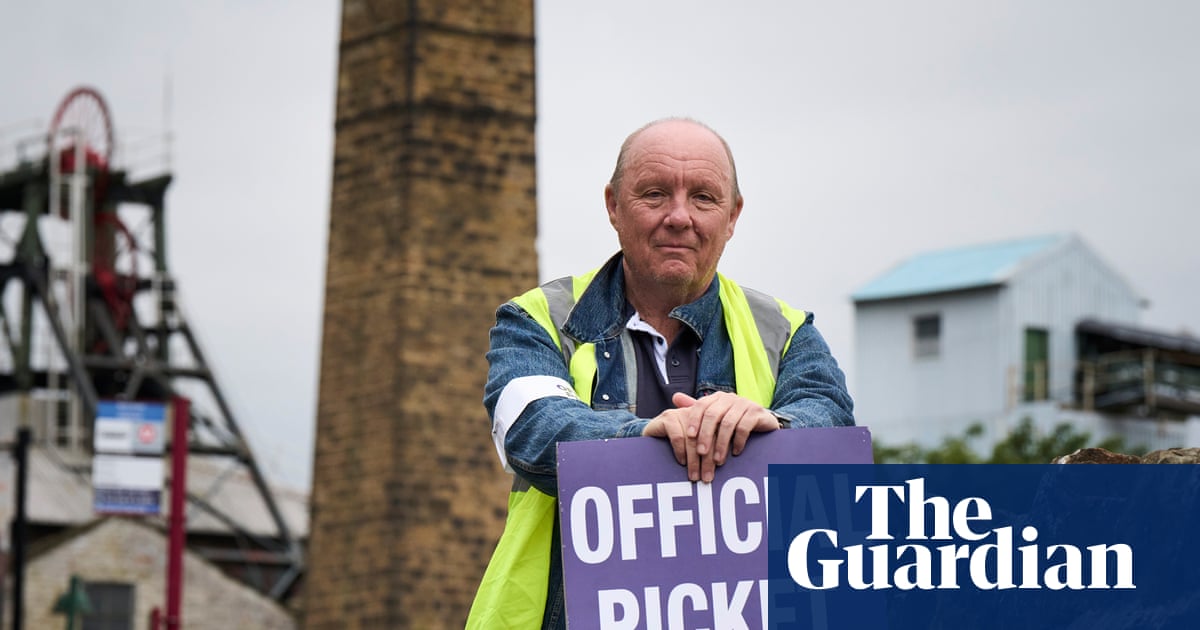
"Staff at the Wakefield museum, many of them former coalminers, have walked out in a dispute over pay, and were joined on Thursday by the now 87-year-old former leader of the National Union of Mineworkers. Alongside him was Russ Kear, 60, who has worked as a guide at the museum since the UK's last coalmine, Kellingley colliery, in North Yorkshire, closed in 2015. He began working as a miner at the age of 16, at Sharlston colliery, near Wakefield, before moving to Selby coalfield."
"In the 1980s, Kear was living at home with his parents his mother did not do paid work, and he walked out of the pits alongside his father, Fred, a fellow miner. It was horrible, he said. The Tory government managed to get some laws in very quickly that stopped my mum claiming any benefits, so there wasn't a penny coming into our house."
"But everybody got together, the community got together. Soup kitchens were opened up, we could get one meal a day. Up at the miners' welfare club, we could go up once a week and you got a carrier bag full of shopping. It really was horrible, he added. It really brought the community together, people helped each other out, but when they started shutting the mines, that destroyed communities."
Museum staff in Wakefield, many of them former miners, walked out over a pay dispute and were joined on the picket line by ex-NUM leader Arthur Scargill and long-serving guide Russ Kear. Kear began mining at 16 at Sharlston and later worked at Selby and Kellingley, the UK's last coalmine which closed in 2015. Around 40 Unison members are involved in the dispute. Kear recalled the 1984–85 strike, describing laws that cut benefit access, severe household hardship, and community responses such as soup kitchens and welfare-club food distributions that helped sustain families.
Read at www.theguardian.com
Unable to calculate read time
Collection
[
|
...
]